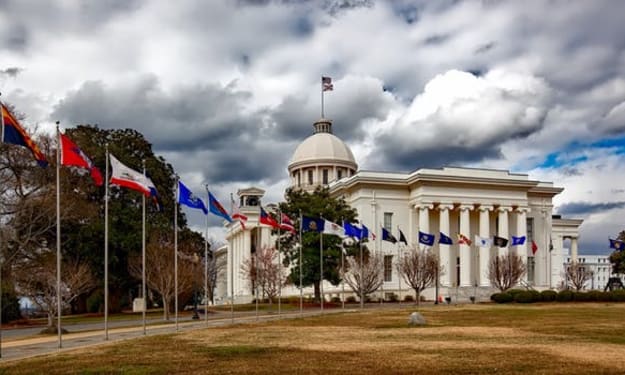Perception rules over reality
perception is more important than truth

Perceptions and reality
Is the perception more important than the truth?
We all have perceptions and the collective of large numbers of people’s perception affects reality. For example, there is a general perception, in Britain, that the police will send six officers after someone who is anonymously alleged to have committed a “hate crime” but will totally ignore a person who is the victim of a robbery.
Definition of perception—an insight or intuition gained by perceiving. To perceive is to become aware through the senses, to come to comprehend or grasp. In relationship to groups of people it is a collective understanding of something, without necessarily having evidential proof.
Definition of gestalt---a system of thought that regards mental phenomena perceived as a whole and not the sum of its parts, a collective understanding which does not appear to have an evidential base.
In many ways perception is a non-scientific and sometimes irrational collective and thus of no great importance, but that is a dangerous view. Perceptions of a political party will decide how people vote. Perceptions can be false, irrational, and misguided but they direct actions, they have tangible effect. Following on from the example above, many motorists in Britain, and in other parts of the world, have a perception that the police are the enemy of drivers, always wanting to find ways to take money from them for minor infringements of some out of context rule. This is based on hearsay and rumour and unsubstantiated claims, but for all its fragile base, this perception colours how a motorist reacts in any meeting with police officers.
People have perceptions about almost everything from food and health to climate change and religion. Many, but not all, perceptions are not based on fact or verifiable evidence but on a sort of gestalt understanding. Since many perceptions are not based on logic, they are very difficult to refute if you use logic. Advertising, politics and often the media in general, understand this and manipulate perceptions to achieve hidden objectives. Human leaders of religious movements can be quite expert in this type of manipulation. Suggestions that some wrongdoing by a few people connected to a particular view, is indicative of everyone sharing that particular view. A perception that following that view indicates wrongdoing, is generated. Gossip and rumour takeover and magnify this perception until a great many people believe it to be an unshakable fact. Advertisers use images of great wealth as background to an advert, for some mundane household product, thus creating a perception that buying this product indicates wealth and success. Politicians, of all parties and political beliefs, employ people to deliberately alter the general public perception of themselves and their rivals. In a population of millions only a very tiny percentage will have personal contact with any particular politician, yet everyone has a perception of what that person is like, how trustworthy, how open, and transparent, how much they agree with the views of the majority. The successful manipulation of public perception is what gets governments elected. In dictatorships it is what keeps a minority group in power. The perception that it is impossible to depose a dictator, is what keeps them in power.
People are individuals, we may have a general structure that is common but there are very few identical twins about. Yet there are perceptions that people can be classified in observable groups, divided up by class, socioeconomic factors, or by racial and ethnic origins. A study of any such group will show a wide range of attitudes, views, and beliefs yet the perception is that all individuals in that group are the same. Public protests about political actions, are claimed to be genuine efforts to make the majority of people not only aware of the political action but also to get this majority to force a change in the political policy. Logically it is obvious that deliberate disruption of legitimate and popular pastimes, sporting events, travel, work, etc will actually alienate the people disrupted. They will form perceptions of the protestors as being anti-social, ego driven bigots. Such a perception may or may not be accurate but that is not the point; the perception created will cause the majority to feel antagonistic to the protestors. They will not be persuaded to support the political view of the protesters, even if they originally have some sympathy with them, but rather drive them to oppose such views. It has to be assumed that those organising and financing such protests and protestors, are intelligent, rational and have objectives. The protestors may be misguided, they may be genuinely anti-social and may think of themselves as anarchists, but those proving transport, legal support, expenses and directing operations, probably are not. They have political or economic objectives. Assuming such intelligence, it is puzzling why they cause perceptions which appear to be in opposition to the stated aims. Unless there is some form of well-hidden Machiavellian convolution, it is hard to understand.
Perception is part of almost every decision, even publishers seem to need attractive artwork before getting enthusiastic about the written article. It seems that the artwork or photographs change the perception of the value, or quality, of the written text and so the promotional effort to be made. Going round the supermarket and picking out which brand to buy, is a decision based on perceptions, we do not taste test every product, very few study every ingredient and country of origin of each ingredient. The decision is based on perception.
What can we do to save democracy from government by perception and steer it back to government by policy that is genuinely supported by the majority? How can the policy of the leader be made more important than their haircut ? Regarding the police it is relatively simple, they have to act, and be seen to have actively deal with the physical crimes that affect people, rather than more abstract accusations of bias and prejudices. They must return to preventing crime rather than being the enforcement section of political thought processes. How to restore logical and factual, evaluation of policy and outcomes of policy, for the majority, is harder. Getting the media and the political spin doctors to forsake their control over people’s perceptions will not be easy. News programs that had to report only fact and no biased opinions, no sensational possibilities, only actual facts that were verified, would be short and dull. No TV “personalities” would want this. The media in general is very powerful in the generation of perception, specific sections of the general media, appear to deliberately attempt to “guide” perceptions, and steer people towards a particular view of events. Governments, political parties, global business, religions, and economic speculators all want to create perceptions, in the minds of the majority of the people. Truth and honesty have no part in this. It is deliberate generation of perceptions that will profit and support themselves. How this can be changed is hard to see. Cencorship that forces the media to always be factual and truthful? Who decides what is truthful and honest? Who censors the censors? Laws to demand that every form of media always promotes alternative views to balance the main one? That can be manipulated by minority groups demanding equal publicity for their own distorted views, as is given to those held by the majority and so distorting public perception of which is the majority view. It is such a complex situation. Persuading everyone to always seek a balance before forming their own perception? This may take a long time.
About the Creator
Peter Rose
Collections of "my" vocal essays with additions, are available as printed books ASIN 197680615 and 1980878536 also some fictional works and some e books available at Amazon;-
amazon.com/author/healthandfunpeterrose
.






Comments
There are no comments for this story
Be the first to respond and start the conversation.